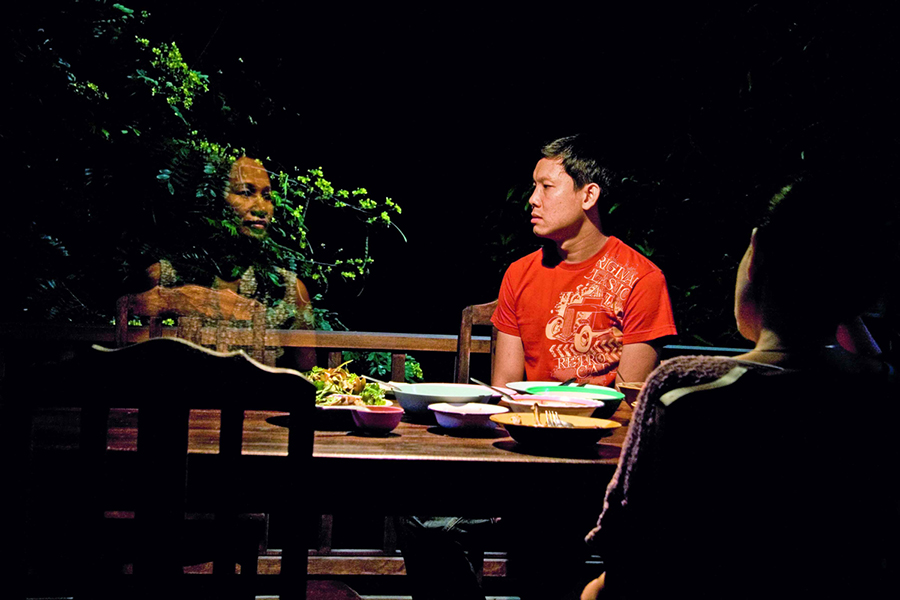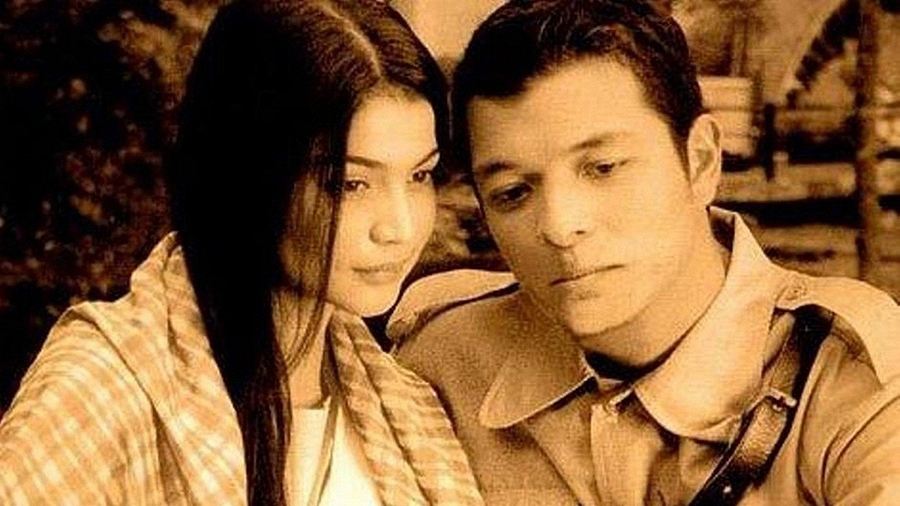
Filmworks will present the adventure fable “The Rocket” as part of the 2014 Fresno Film Festival. The international co-production — from Australia, Laos, and Thailand — screens Saturday, April 26 at 4 p.m., and it will feature a post-screening Discussion Circle with Fresno State anthropologist Dr. Kao-Ly Yang. The full festival runs April 25-27.
A cross-generational family drama, “The Rocket” follows the hopeful journey of 10-year-old Ahlo, a boy trying to refute his bad luck by entering himself into a competition to build a giant rocket that might help bring rain to his village in war-scarred Laos. It’s not the first Laotian film that Filmworks has presented; at the 2008 Fresno Film Festival, we played “Nerakhoon (The Betrayal),” a powerful, award-winning, and well-received film that documented the life of Thavisouk Pharasavath and the wars he fought not only in his native Laos but on the streets of New York City as an American immigrant.
Inspired by our forthcoming screening of “The Rocket,” we called upon Cambodian-born film festival programmer Sophoan Sorn to share some of his favorite films about Southeast Asia. Sorn’s family migrated from Cambodia to Stockton, Calif., in 1991 when he was 6 years old. He later studied film at the Academy of Art University in San Francisco, and in 2008 he founded the acclaimed San Joaquin International Film Festival in Stockton, which celebrated its seventh anniversary this past January. Since 2010, he also directs the Berlin & Beyond Film Festival in San Francisco.
Sorn feels it’s important to recommend films that people can actually find and see, pointing out that most of Southeast Asian cinema doesn’t typically have international distribution and is therefore not visible to Western audiences.
“Not every regional cinema is popular,” Sorn says. “At the same time, I think [Southeast Asia] makes a lot of commercial films that are not necessarily high in story or in cinematic art. . . . People might relate to them universally, but if they do not get selected for the world stage of launching-pad festivals like Cannes or Toronto or the Berlinale, most likely they will not get seen beyond their national borders. Distribution companies from around the world flock to these major festivals to discover new films and purchase distribution rights for release in their local territories.”
Here’s hoping that some of Sorn’s recommendations help put a few great films on your radar.

Sorn says: “When people think of the Cambodian struggle, they think of the Khmer Rouge. But there are many people in Cambodia living in rural areas. There’s a huge rift between rich and poor. Urbanization is a huge thing. A lot of poor, very few rich. . . . It’s so crucial to give people perspectives they never expected. There are lots of different kinds of Cambodians.”
Also out of Cambodia, Sorn recommends:
• “The Missing Picture”: Half documentary and half claymation dream, this 2013 film about one family’s experience before and after the Khmer Rouge wowed audiences and won awards at Cannes and also earned an Oscar nomination.
• “Golden Slumbers”: This 2011 documentary reconstructs the golden age of Cambodian cinema from 1960-1975.
• “Rice Field of Dreams”: This 2011 documentary follows the the country’s First National Baseball Team on a five-year journey as it prepares for competition against other Southeast Asian nations.
• “Dancing Across Borders”: This 2010 documentary tells the story of Sokvannara “Sy” Sar, a young Cambodian dancer who comes to the United States with the help of American philanthropist Anne Bass.

Sorn says: “[Weerasethakul] is a very mystical director. But it’s not just him. Lots of people in this culture believe in spirits. Spirits in the trees, spirits in the forest. This film is very meditative. . . . Affecting. That’s the best word for me to describe it. How do you express how you feel? How can you artistically articulate how you feel when you’re sad, at the moment you are moved by a subject? It’s something you can’t put into words. The amazing part about this film is that it really enlivens your senses. It lifts up your spirit and captivates you. It’s seductive.”
Also out of Thailand, Sorn recommends:
• “Tropical Malady”: Also from Weerasethakul, this 2004 drama tells the story of a romance between a soldier and a country boy, intertwined with a Thai folk tale connected to the forest, where spirits go to live.
• “The Love of Siam”: This 2007 romantic drama tells the sweet story of two childhood friends who are reunited and discover their feelings for each other.

Sorn also recommends:
• “Ilo Ilo” out of Singapore: This elegant 2013 drama, a Cannes favorite, follows the lives of a family and their maid and the complications in their lives in the wake of the Asian recession.
• “The Act of Killing” about Indonesia: This riveting 2012 documentary comes from American-born director Joshua Oppenheimer, who is based in Denmark. The film turns documentary filmmaking upside down by re-enacting and presenting in current time the story of Anwar Congo and his friends, who beginning in 1965 became the mass murderers of alleged communists, intellectuals, and ethnic Chinese and who have been celebrated as heroes for more than 40 years. The filmmakers ask them to re-create their killings.
In the end, Sorn says his longtime love affair with European culture has influenced his current movie interests most, both in his programming work for the SJIFF and also at the Berlin & Beyond festival. “But Southeast Asian cinema pulls me back,” he says. “There’s always a desire to want to know more.”
And about “The Rocket,” our 2014 Fresno Film Festival selection, Sorn says: “I love this film even more now than when I first saw it a year ago [at its world premiere in Berlinale]. I still think about it. It’s an important film.”
Jefferson Beavers teaches journalism and film studies at Fresno City College. He serves as Filmworks president.
